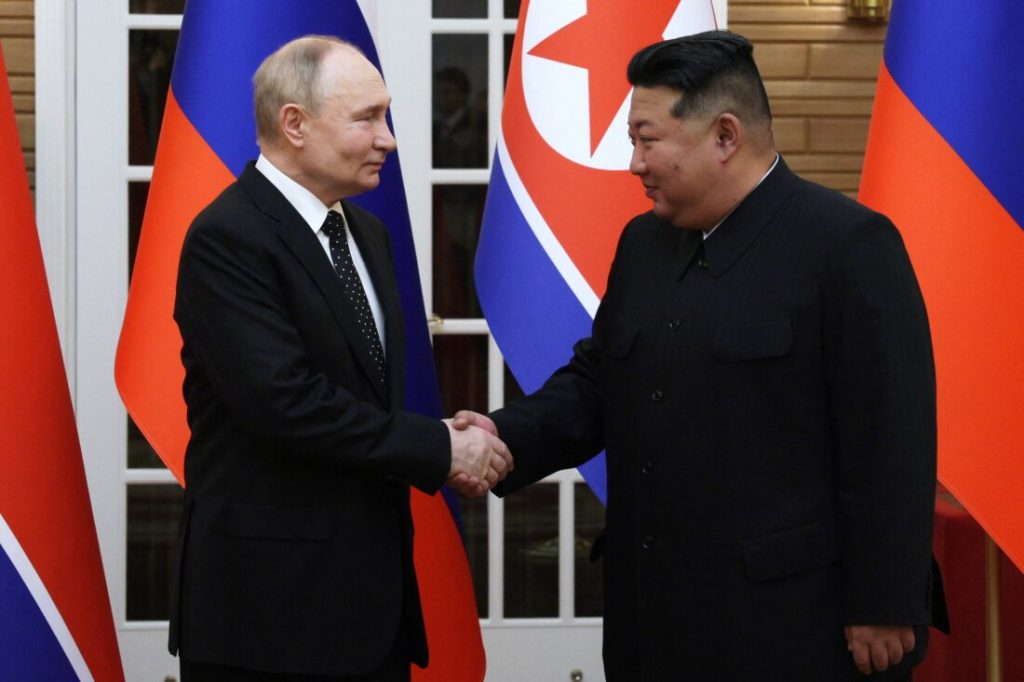South Korea’s spy agency has reported that North Korea has commenced deploying soldiers to participate in the conflict in Ukraine alongside Russia, prompting Seoul to issue a warning about a significant security threat.
This follows Ukrainian President Volodymyr Zelensky’s statement that he had received intelligence indicating the potential involvement of 10,000 North Korean troops in the war.
South Korean President Yoon Suk Yeol called for a security meeting and stressed the need for the international community to respond using all available means.
The spy agency revealed that approximately 1,500 troops have arrived in Russia, and sources have suggested that the final number could be as high as 12,000. This development coincides with mounting evidence indicating North Korea’s provision of ammunition to Russia, exemplified by the recovery of a missile in Ukraine’s Poltava region.
In recent months, Moscow and Pyongyang have collaborated more closely, with North Korean leader Kim Jong Un referring to Russian President Vladimir Putin as his “closest comrade” during Putin’s birthday celebration.
The allegation from South Korea’s National Intelligence Service comes in the wake of reports from Ukrainian military intelligence sources indicating that Russia is forming a unit comprised of North Korean soldiers.

Earlier in the week, Putin presented a bill to ratify a military pact with Kim, in which Russia and North Korea pledged to assist each other in the event of “aggression” against either country. The NIS disclosed that North Korean troops are undergoing training in Russian bases in Vladivostok, Ussuriysk, Khabarovsk, and Vlagoveshensk.
The NIS stated that since August, North Korea has dispatched 13,000 shipping containers containing shells, missiles, and anti-armour rockets to Russia. It added that as many as eight million 122-mm and 152-mm shells have been provided to Russia.
Nonetheless, some military experts believe that Russian military units will encounter challenges in integrating North Korean troops into their frontlines. They cite the language barrier and the North Korean army’s lack of recent combat experience.


